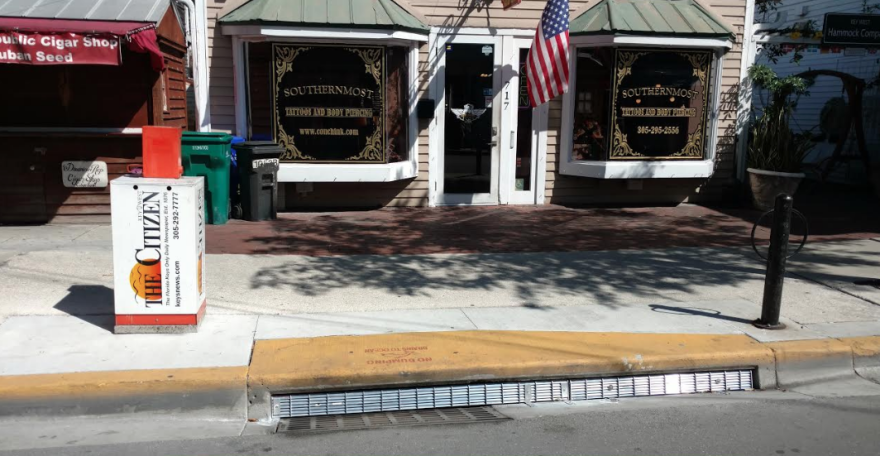South Florida's water challenges range from sea-level rise to blue-green algae to hurricanes to waterway pollution.
But entrepreneurs in the region's growing environmental technology scene are helping communities see their water challenges as opportunities for innovation, profit and growth. To name a few: Finalists were just announced in a South Florida-based, $10 million contest to develop technology that will help mitigate algae blooms. And a Miami-based startup is using genetic testing to help communities pinpoint sources of fecal bacteria in water -- potentially saving taxpayers tens of thousands of dollars on unneeded infrastructure repairs.
One of the leaders on the growing enviro-tech scene is Emilio Lopez, co-founder and CEO of SOP Technologies. The company's name stands for "Stop Ocean Pollution," and Lopez and his team have created technology to keep litter out of waterways. Lopez is also collaborating on water solutions with other local startups.
Emilio Lopez spoke with WLRN’s Kate Stein.
LOPEZ: What we started off developing in-house and we patented was a filter -- some people would call it a screen -- that essentially blocks debris and litter at the street from going into the storm drain system and flowing through pipes and getting out into waterways. But you know when I'm setting up a meeting with a city official that's very busy, I don't want to talk about just one technology. Simply preventing pollution at the street level is not enough to really address stormwater pollution.
So the companies that we've partnered with, we have common interests as far as our mission is concerned and also the areas of technologies and what we're trying to do.
WLRN: Tell me about those partnerships.
LOPEZ: One of them, for example, provides cleaning of sand by removing cigarette butts and glass particles and all these other items that are on science with sand sifting devices. Another company we've partnered with, they do a water analysis. So a city that has, for example, fecal matter contamination, they can send this water to their lab and analyze what's in the water so they can better focus their remediation strategies. And the last one is an app that we've partnered again with a local startup to provide because it allows you to capture data more effectively, to capture photos especially from employees and contractors that are working out in the field or other information that can help to communicate what you're doing to protect the environment.
WLRN: Have you gotten buy-in from city and county officials as far as testing some of these different technologies?

LOPEZ: Absolutely. In fact with the city of Aventura, they started off with a pilot project for the stormwater curb filters that we provide. And that the modus operandi was similar with Key West. They had issues particularly on Duval Street when there were major events like Fantasy Fest and because of that they had a very high cost of cleaning the stormwater system. So they started with a small pilot project on a different street, on Flagler Avenue, then seeing the results of that they decided to implement the filters on Duval Street. So now all of Duval Street has our curb filters.
WLRN: What's in the future for SOP?
LOPEZ: So, for example, in the city of Key Biscayne, they had an issue where a lot of debris was falling through a storm drain. It was going down into the stormwater system and causing a lot of expensive cleanup. So we created a basket for them to essentially contain that debris. The challenge, though, is that you have a hidden basket and you need to know when to clean it. So essentially we're talking about a smart stormwater, smart city type of solution that uses connected devices, web interfaces and analysis to help cities reduce costs while at the same time preventing pollution and floods.
WLRN: What do you think we can do to continue to expand the environment and tech solutions scene here?
LOPEZ: The realization has to be there that when we're talking about the environment, it's not an aesthetic problem alone. We rely a lot on the water and the environment for not only leisure for the residents, but also the economy -- from tourism and trade.
So I would say one of the challenges is that there isn't unfortunately an appetite to actually address environmental issues as much as there should be. This is an issue because you have a lot of disruptive new technologies that are being developed in Miami with the startups but they're not growing. So I hope that in the future we have more access to capital -- but also efforts by cities, our clients, by state agencies, federal agencies for this region to help these companies grow.
This interview has been condensed and edited for clarity.





